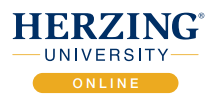How to Become a Healthcare Documentation Specialist in Illinois

Want personalized recommendations?
Let's match you to the right program

A Healthcare Documentation Specialist, also known as a Medical Transcriptionist, is a professional responsible for converting voice-recorded medical reports into written documents. They play a crucial role in the healthcare industry by ensuring accurate and detailed documentation of patient records.
Article continues after recommendations
Recommended for you
Responsibilities of a Healthcare Documentation Specialist
- Listening to voice recordings of medical professionals and transcribing them into written reports
- Reviewing and editing transcriptions for accuracy, grammar, and clarity
- Organizing and maintaining patient records and medical documents
- Ensuring compliance with legal and ethical standards in healthcare documentation
- Collaborating with healthcare professionals to clarify information or obtain additional details when necessary
Work Settings for Healthcare Documentation Specialists
Healthcare Documentation Specialists can work in various settings, including:
-
Hospitals and Medical Centers: Many healthcare documentation specialists are employed by hospitals and medical centers, where they transcribe reports for different departments and specialties.
-
Physician's Offices: Some specialists work in physician's offices, assisting doctors with the documentation of patient visits and medical procedures.
-
Insurance Companies: Healthcare documentation specialists may also work for insurance companies, reviewing medical records to determine coverage and claims.
-
Freelancing: With the advancement of technology, many specialists work as freelancers, providing transcription services remotely to healthcare facilities.
Requirements to Become a Healthcare Documentation Specialist in Illinois
To become a Healthcare Documentation Specialist in Illinois, you need to meet the following requirements:
-
Education: A high school diploma or equivalent is typically required. However, some employers may prefer candidates with postsecondary education in medical transcription or related fields.
-
Training: Completion of a recognized medical transcription training program is essential. These programs provide instruction on medical terminology, transcription techniques, and relevant software tools.
-
Certification: While not always mandatory, obtaining certification can enhance job prospects. The Association for Healthcare Documentation Integrity (AHDI) offers the Registered Healthcare Documentation Specialist (RHDS) and Certified Healthcare Documentation Specialist (CHDS) certifications.
-
Legal Requirements: Healthcare Documentation Specialists may be required to comply with state and federal laws regarding patient confidentiality, such as the Health Insurance Portability and Accountability Act (HIPAA).
Finding Healthcare Documentation Specialist Classes in Illinois
If you're interested in pursuing a career as a Healthcare Documentation Specialist in Illinois, Dreambound can help you find suitable training programs. Dreambound is the largest platform for students to discover and compare vocational training programs.
You can find Healthcare Documentation Specialist classes in Illinois through Dreambound by visiting their website here. Dreambound provides comprehensive information about training programs, including course details, duration, and cost. It's a valuable resource for aspiring Healthcare Documentation Specialists to find the right program that meets their needs and goals.
Remember, becoming a Healthcare Documentation Specialist requires the acquisition of specific skills and knowledge. With the right education and training, you can embark on a fulfilling career in this essential healthcare role.
How do I get my Healthcare Documentation Specialist certification?
If you're interested in becoming a Healthcare Documentation Specialist, obtaining the necessary certification is an important step in your career journey. Certification not only validates your skills and knowledge in the field, but it also sets you apart from other job applicants and increases your chances of securing a job in the healthcare industry.
To become a certified Healthcare Documentation Specialist, you need to follow these steps:
-
Education: The first step is to complete a formal education program in healthcare documentation. These programs are typically offered by community colleges, vocational schools, or online institutions. The program will provide you with the necessary knowledge and skills to perform the duties of a Healthcare Documentation Specialist. The coursework may include medical terminology, anatomy and physiology, medical coding, and medical transcription techniques.
-
Experience: After completing your education program, it's important to gain practical experience in the field. Many employers prefer candidates with experience, so it's a good idea to look for opportunities to gain hands-on experience. You can consider volunteering at a healthcare facility or completing an internship to gain valuable experience and enhance your skills.
-
Certification: Once you've completed your education and gained some experience, you can then pursue certification as a Healthcare Documentation Specialist. The leading certification in this field is the Certified Healthcare Documentation Specialist (CHDS) certification, offered by the Association for Healthcare Documentation Integrity (AHDI). To be eligible for the CHDS certification, you must have a minimum of two years of experience in healthcare documentation or a related field.
To obtain the CHDS certification, you need to pass an examination that tests your knowledge and skills in healthcare documentation. The exam consists of multiple-choice questions and covers topics such as medical terminology, anatomy and physiology, medical transcription techniques, and healthcare documentation guidelines. It's important to study and prepare for the exam to increase your chances of success.
- Continuing Education: After obtaining your certification, it's important to stay up-to-date with the latest developments in the field. The healthcare industry is constantly evolving, and it's important to continue learning and improving your skills. The AHDI offers various continuing education opportunities, including webinars, workshops, and conferences, to help you stay current in your field.
Get courses selected just for you
Try our powerful search engine
Article continues after recommendations
How do I get a job as a Healthcare Documentation Specialist?
Once you've obtained your certification as a Healthcare Documentation Specialist, the next step is to find a job in the field. Here are some steps you can take to increase your chances of landing a job as a Healthcare Documentation Specialist:
-
Update your resume: Start by updating your resume to highlight your education, certification, and relevant experience. Tailor your resume to the specific job you're applying for, emphasizing your skills and qualifications that are most relevant to the position.
-
Network: Networking is an important aspect of finding a job in any field, including healthcare documentation. Reach out to professionals in the industry, attend industry conferences and events, and join professional associations to expand your network. Networking can help you uncover hidden job opportunities and get referrals from people who know and trust your work.
-
Apply for jobs: Utilize online job boards, company websites, and professional networking platforms to search for job openings in healthcare documentation. Customize your cover letter for each application, highlighting your relevant skills and experiences. Be sure to follow up on your applications to show your enthusiasm and commitment.
-
Prepare for interviews: If you're invited for an interview, it's important to prepare in advance. Research the company and the role you're applying for, and practice common interview questions. Be prepared to discuss your education, certification, and relevant experience, and how they align with the position you're applying for.
-
Highlight your skills: During the interview, emphasize your skills and how they can benefit the organization. Healthcare Documentation Specialists need to have excellent attention to detail, strong grammar and punctuation skills, and the ability to work independently. Demonstrate your ability to handle confidential information and meet tight deadlines.
-
Continued professional development: Once you've secured a job as a Healthcare Documentation Specialist, it's important to continue your professional development. Stay updated with the latest industry trends and advancements, and seek opportunities to enhance your skills and knowledge. This can include attending workshops, webinars, and conferences, as well as pursuing additional certifications or advanced degrees.
Career Paths and Opportunities after Becoming a Healthcare Documentation Specialist
Becoming a Healthcare Documentation Specialist can open up various career paths and opportunities in the healthcare industry. Here are some potential career paths you can explore:
-
Medical Transcriptionist: As a Healthcare Documentation Specialist, you can work as a medical transcriptionist, transcribing recorded medical dictation into written reports. This role requires strong listening skills, attention to detail, and knowledge of medical terminology and procedures.
-
Medical Coder: With additional training and certification, you can pursue a career as a medical coder. Medical coders assign codes to medical diagnoses and procedures for billing and insurance purposes. This role requires a strong understanding of medical coding systems, such as ICD-10 and CPT.
-
Health Information Technician: As a Healthcare Documentation Specialist, you can also explore opportunities in health information management. Health information technicians manage and organize patient health information, ensuring its accuracy, accessibility, and security. This role requires knowledge of medical terminology, health information systems, and privacy regulations.
-
Medical Editor: With experience and expertise in healthcare documentation, you can work as a medical editor, reviewing and editing medical documents for accuracy, clarity, and adherence to style guidelines. This role requires strong writing and editing skills, as well as knowledge of medical terminology and guidelines.
-
Medical Writer: Another career path to consider is medical writing. Medical writers create content for various healthcare-related materials, such as patient education materials, research articles, and regulatory documents. This role requires strong writing skills, scientific knowledge, and the ability to communicate complex medical information to a non-technical audience.
-
Healthcare Documentation Specialist Trainer: With experience and expertise in healthcare documentation, you can also pursue a career as a trainer or educator in the field. This role involves developing and delivering training programs to healthcare documentation specialists, ensuring they have the necessary skills and knowledge to perform their duties effectively.
These are just a few examples of the career paths and opportunities available to Healthcare Documentation Specialists. The healthcare industry is vast and diverse, offering numerous possibilities for growth and advancement.
Final Thoughts
Becoming a Healthcare Documentation Specialist can be a rewarding career choice for individuals with strong attention to detail, excellent grammar and punctuation skills, and an interest in the healthcare field. By obtaining the necessary certification and gaining practical experience, you can increase your chances of securing a job in this field.
Once you've become a Healthcare Documentation Specialist, there are various career paths and opportunities to explore, such as medical transcription, medical coding, health information management, medical editing, and medical writing. Continuous professional development is essential to stay current in the field and seize new opportunities for growth and advancement.
If you're interested in pursuing a career as a Healthcare Documentation Specialist, take the first step by researching educational programs and certification options. With dedication, hard work, and a passion for accuracy and detail, you can embark on a successful career in healthcare documentation.
Explore Dreambound's in-depth guides, each shedding light on the unique requirements and challenges in cities across the US. For more insights, be sure to check out our other guides.
- Healthcare Documentation Specialist classes near me in Baton Rouge
- Healthcare Documentation Specialist classes near me in Greenville
- Healthcare Documentation Specialist classes near me in New Orleans
- Healthcare Documentation Specialist classes near me in Salt Lake City
- Healthcare Documentation Specialist classes near me in Tucson
Weighing the possibilities of a career shift ? Dreambound has written many extensive guides to guide you in making informed decisions. Check out some of these resources below:

Athena is Co-founder and CEO of Dreambound.



